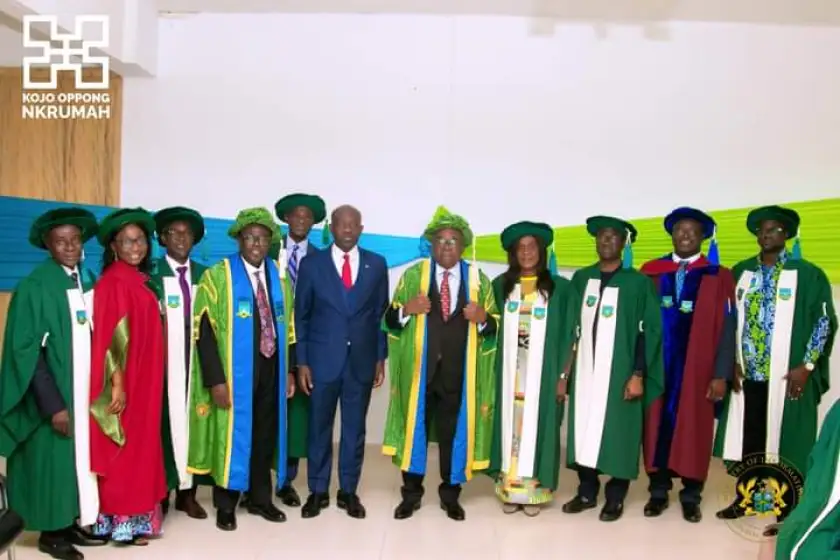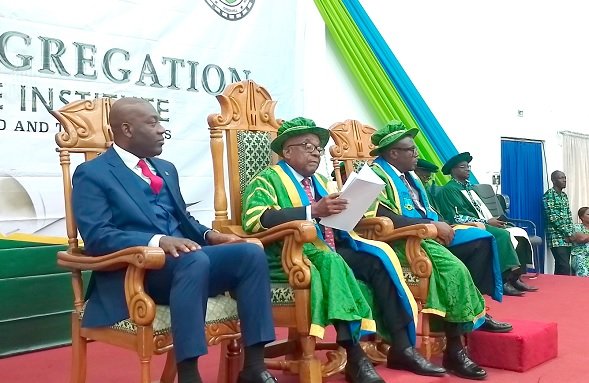Minister for Information, Mr. Kojo Oppong-Nkrumah, has emphasized the government’s commitment to creating an investment-friendly environment that fosters entrepreneurship and boosts productivity.
Speaking at the 23rd Graduation ceremony of the Ghana Institute of Management and Public Administration (GIMPA) in Accra, the stressed the importance of enhancing collaborations with academia, industry, and citizens to ensure that education and training align with the changing needs of society.
The graduation event, held in three sessions starting from Friday, July 28, 2023, saw a total of 1000 graduates from various disciplines, including the Faculty of Law, School of Technology, School of Public Service and Governance, Business School, School of Liberal Arts and Social Sciences, as well as PhD and Masters Degree students.
Mr. Oppong-Nkrumah emphasized the government’s reliance on data and empirical evidence to shape and implement policies and programs effectively.
Furthermore, he encouraged industry players to invest in education by offering scholarships, grants, and contributing to the infrastructural development of higher learning institutions in the country.
This collaboration between the private sector and educational institutions would play a crucial role in shaping a bright future for Ghana’s development.

According to the Minister, establishing a strong synergy between academia and industry is crucial in providing graduates with a well-rounded education that enables them to be effective in their work.
He emphasized that industry players have a significant role to play in this regard by investing in research and development, encouraging innovation, and addressing emerging challenges and opportunities.
“By creating an environment that encourages entrepreneurship and fostering innovation, we can unlock opportunities and generate sustainable employment for the graduates,” he added.

Professor Samuel Kwaku Bonsu, the Rector of GIMPA, revealed that the Institute has taken significant measures to establish itself as a Center of Excellence.
One of these steps includes the formulation of a new vision for the Institute, along with a proposed Strategic Plan. The development of this Plan involved extensive consultations with the Institute’s stakeholders and the wider community.
The primary objective of the Strategic Plan is to revitalize GIMPA’s legacy and secure its continuous growth and prominence in the years to come.
Prof. Bonsu emphasized that the past year was dedicated to laying the necessary groundwork to achieve the goals outlined in the Plan, with the ultimate aim of becoming a leading Institute of higher learning.
“We have emphasised building integrity and discipline in the system and have commenced a sensitization drive to emphasise quality and to develop a KPI-based performance culture, he added.

